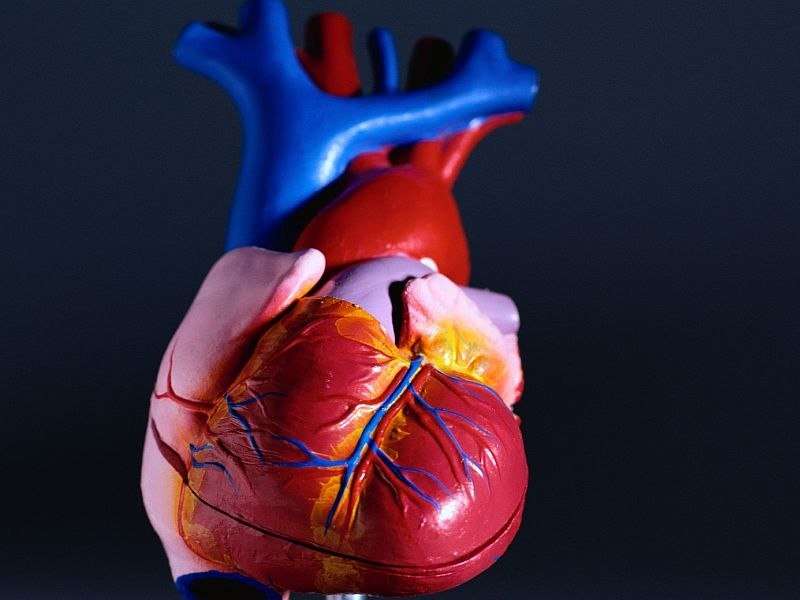What is alcoholic cardiomyopathy?
Alcoholic cardiomyopathy is a condition in which the muscles of the heart are weakened by alcohol abuse. Alcoholic cardiomyopathy is caused by the toxic effects of alcohol on the heart muscle and can lead to congestive heart failure or arrhythmias. It can result in an enlarged heart (cardiomegaly) and symptoms like shortness of breath, fatigue, swelling (edema) of the legs or abdomen, and irregular heartbeat.
Auto Ad
Types of alcoholic cardiomyopathy
The causes of alcoholic cardiomyopathy vary depending on the type, as well as the severity of the disease. There are three types of alcoholic cardiomyopathy: dilated, hypertrophic and restrictive.
Dilated cardiomyopathy (DCM): is a disease in which the heart muscle weakens and becomes enlarged, making it hard for the heart to pump blood. It leads to a decrease in heart function and can cause irregular heartbeat. DCM occurs when there is a problem with the structure or function of heart muscle cells, called cardiomyocytes.
Auto Ad
Causes of alcoholic cardiomyopathy
Drinking alcohol in moderation has been shown to have numerous health benefits. However, excessive consumption of alcohol can be harmful or fatal. One dangerous side effect is alcoholic cardiomyopathy, which is a degenerative disease of the heart muscle that results from chronic alcoholism. Many factors contribute to this disease, including genetics and diet, but it often occurs in individuals whose livers are unable to properly metabolize alcohol. It’s caused by long-term abuse of alcohol, and it’s especially common in heavy drinkers who drink large amounts of alcohol regularly over many years.
Symptoms of alcoholic cardiomyopathy
The symptoms of alcoholic cardiomyopathy include shortness of breath while lying flat (orthopnea), fatigue, swelling feet, and ankles, difficulty breathing when walking upstairs (dyspnea), and abnormal heart rhythms. This is a dangerous condition that can lead to a heart attack or even sudden death. It’s important to understand the symptoms and risk factors for this disease to determine whether you or a loved one may have it.
Diagnosis of alcoholic cardiomyopathy
Diagnosis of alcoholic cardiomyopathy is difficult because many of the symptoms are similar to other heart conditions. Many patients do not even realize that they have this condition, and their doctors may not suspect it either. For example, some patients may think that they just have “heartburn”, or that chest pain is related to indigestion or stress. They may not connect these symptoms with consuming alcohol in excess.
Treatment options for alcoholic cardiomyopathy
Alcoholic cardiomyopathy has several treatments depending on the severity of the disease. Lifestyle changes should be the first priority for anyone with this disease to ensure successful treatment. Treatment for alcoholic cardiomyopathy includes controlling cardiovascular risk factors. While early detection and treatment are essential in preventing further damage, options for alcoholic cardiomyopathy treatment are limited. There are several treatments for alcoholic cardiomyopathy that include abstinence, medications, and surgery.
Prevention of alcoholic cardiomyopathy
The prevention of alcoholic cardiomyopathy is achieved by having a low daily dose of alcohol. There is a concern that cardiovascular events may be more frequent in patients with a history of alcoholism and daily alcohol consumption and this condition is not spontaneously reversible. The recommended daily dose is one drink for women and two for men.
In conclusion
Alcoholic cardiomyopathy can be a life-threatening condition, especially if not diagnosed and treated early. This guide has provided you with detailed information on the signs and symptoms of alcoholic cardiomyopathy as well as treatment options available to those suffering from this disease. It is important to keep in mind that even moderate alcohol consumption can lead to heart muscle damage, and therefore should be avoided. If you or a loved one is suffering from alcoholic cardiomyopathy, finding the right treatment plan may seem like an overwhelming task. If you are concerned about your heart health, talk to your doctor about the risks of alcohol abuse and alcoholic cardiomyopathy.








